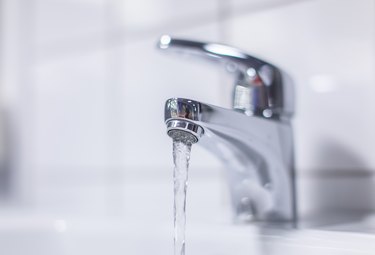Effortless Actions to Raise Low Water Pressure in Your Home
Effortless Actions to Raise Low Water Pressure in Your Home
Blog Article
How do you actually feel with regards to 10 Reasons for Low Water Pressure in Your House?

Low tide stress in your house can be an irritating problem, affecting everything from bathing to washing recipes. If you're experiencing weak water flow, there are a number of possible reasons and remedies to check out. In this overview, we'll discuss usual reasons for low tide stress and useful steps to attend to the problem successfully.
Introduction to Low Tide Stress
Low water stress occurs when the flow of water from your faucets, showers, and other fixtures is weaker than common. This can make day-to-day jobs much more tough and less reliable. Comprehending the root causes of low tide stress is important to discovering the ideal service.
Common Sources Of Low Water Stress
Faulty Stress Regulatory Authorities
Stress regulators are accountable for maintaining consistent water pressure in your house. If they malfunction, it can cause low tide pressure or uneven circulation throughout your home.
Municipal Water System Issues
Often, the problem exists outside your home. Community water problems, such as main line leakages or upkeep work, can momentarily minimize water stress in your area.
Pipe Obstructions
With time, pipelines can end up being blocked with mineral deposits, debris, or particles, restricting the flow of water. This is an usual issue in older homes with galvanized steel pipes.
Corrosion
Corrosion within pipelines can cause leakages and decreased water stress. Corrosion buildup can restrict water circulation, particularly in maturing plumbing systems.
Exactly How to Identify Low Tide Stress
Checking Pipes
Evaluate noticeable pipes for signs of leaks, corrosion, or clogs. Pay attention to any kind of uncommon noises, such as knocking or rattling pipelines, which could suggest issues within the plumbing system.
Consulting with a Plumber
If you're incapable to pinpoint the reason for low tide pressure, take into consideration hiring a specialist plumber to perform an extensive evaluation. They can determine underlying concerns and suggest proper solutions.
Checking Faucets and Fixtures
Beginning by testing the water pressure at different taps and components throughout your home. If the problem is separated to specific areas, it might show local troubles.
Do It Yourself Solutions to Deal With Low Water Pressure
Flushing Water Heater
Debris accumulation in the water heater can limit circulation and reduce performance. Flushing the storage tank regularly aids eliminate debris and maintain optimum performance.
Inspecting Stress Regulatory Authority
Make certain that the pressure regulatory authority is functioning correctly. Changing or changing the regulatory authority can assist recover appropriate water stress throughout your home.
Cleaning Up Aerators and Showerheads
Mineral deposits can collect in aerators and showerheads, lowering water flow. Remove and clean up these parts regularly to enhance water stress.
Clearing Clogs in Water Lines
For small obstructions, try utilizing a plumbing snake or chemical drainpipe cleaner to clear blockages in pipelines. Beware when using chemicals and follow safety and security standards.
When to Call a Specialist Plumber
If do it yourself initiatives fail to deal with the concern or if you think considerable plumbing issues, it's ideal to seek support from a certified plumber. They have the know-how and devices to deal with complicated concerns securely and effectively.
Preventive Measures to Maintain Water Stress
Setting Up a Pressure Booster
Think about setting up a stress booster pump to improve water stress in areas with consistently reduced flow. This can be especially advantageous for multi-story homes or buildings with high-demand components.
Tracking Water Usage
Bear in mind water usage habits and avoid overtaxing the plumbing system. Simple adjustments, such as astonishing showers and laundry loads, can aid maintain ample water stress.
Regular Maintenance
Set up routine maintenance for your plumbing system to avoid problems such as corrosion, leakages, and obstructions. Attending to minor problems early can aid prevent even more substantial repair work later on.
Verdict
Handling low tide stress can be irritating, yet determining the underlying reasons and applying proper services can recover ideal circulation throughout your home. Whether it's cleaning aerators, evaluating pipes, or speaking with a plumber, taking positive actions can guarantee a steady supply of water for your everyday demands.
How to Fix Low Water Pressure In Your Home
Municipal Water Supply Issues
Scheduled maintenance, high demand, and water main breaks are all potential causes for low water pressure within a city or county’s water lines. While there’s not much you can do to personally fix a problem with your city or county’s water supply system, you can play a big role in documenting the issue and alerting those who can.
How to fix it:
Ask your neighbors if they are experiencing any issues with low water pressure. If multiple homes are affected, it’s likely related to the city’s water line. Contact the local Water Authority to see if there is any maintenance taking place that might be affecting your supply. Also let them know of your specific issues. If other homeowners report the same issues, they’ll know that there could be a larger issue to look into. Faulty Fixtures
A damaged or clogged shower head, faucet or appliance is the first thing we’d suggest checking, especially if low water pressure appears to be isolated to a specific area of your home.
How to fix it:
First, turn off the main water supply to your home. Check the affected appliances for build-up or debris. In the case of a faucet, you can simply unscrew the aerator at the tip of the faucet. Showerheads should be fully detached from the water pipe. While the appliances are detached, you may want to check the water supply to determine if the fixtures were in fact the issue. To clean, soak the showerhead or aerator in vinegar and brush off any visible debris. Reattach the fixtures and check the water pressure again. If it is still low, there is likely a deeper issue at hand, which can be determined by a professional plumber. Pipe Obstructions
Mineral deposits, rust or other debris within water pipes can lead to blockages or corrosion over time.
How to fix it:
When you think of a clog, you probably think of a drain clog. While there are many DIY solutions to clearing a drain, clogs in a water pipe will almost always require the help of a professional plumber. A plumber will be able to locate the affected pipe and clean out any debris or mineral deposit buildup. In severe cases, the pipe may need to be replaced. Your plumber might also recommend a water softening system to remove the minerals from your home’s water supply that can contribute to pipe blockages over time.
Plumbing Leak
Undetected water line leaks can divert water away from your residential pipes, reducing the water pressure in your fixtures.
How to fix it:
Check your water meter by turning off all water sources and monitoring the meter for any movement, which could be a clear indicator of a potential leak. Check all visible pipes for signs of leaking, including water stains, active dripping or damp spots around the pipe. Inspect fixtures, including faucets and showerheads, for any drips. Test the pressure but recording the pressure with the main water valve shut off. Leave off for a few hours and test again. A significant drop in pressure is a clear sign of a leak. https://kiddcoplumbing.com/plumbing-blog/how-to-fix-low-water-pressure/

I came across that blog posting on Low Water Pressure in the House? when looking around the internet. You should take the time to distribute this post if you liked it. Many thanks for your time spent reading it.
Book Report this page